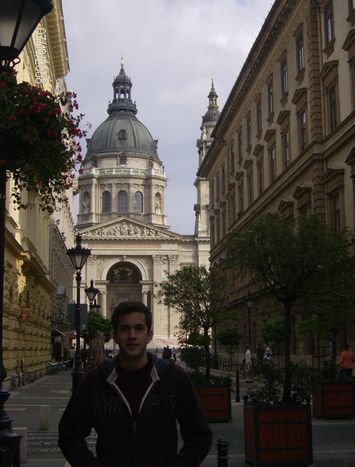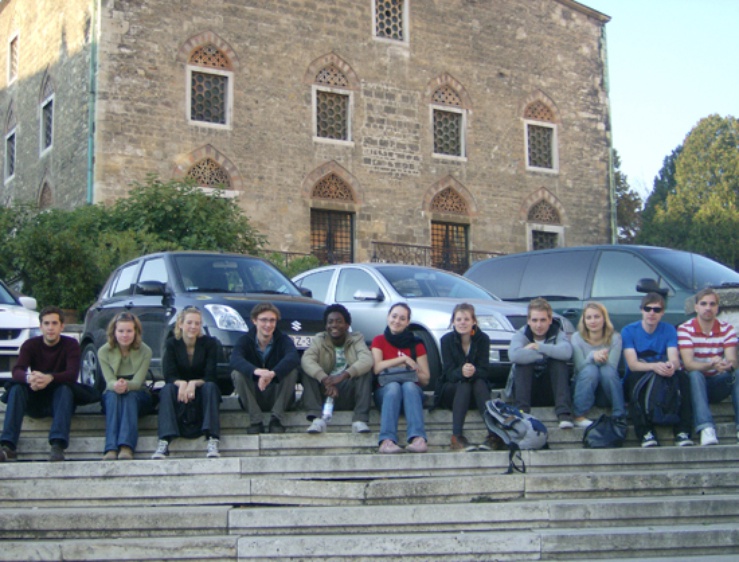
Erasmus testimony: a Greek student in Budapest
Published on
In the final installment of a five-part series, a politics and public administration student from Athens, 21, confirms and rejects historical and linguistic stereotypes in the Hungarian capital. The student exchange programme has run for twenty-one years
It’s a good idea to finish your studies by doing a semester abroad as an Erasmus student. I really wanted to compare Athens with another big capital and get used to a different lifestyle rhythm. Budapest is one of the most beautiful and historic capitals of Europe. I was interested in hearing one of the most difficult languages in the world, and in feeling the bond between my country and Hungary. Many Greek immigrants have left their cultural fingerprints here. Almost every Hungarian I meet knows a simple Greek word (like kalimera, which means good morning) or some events in our history. They all have an ideal image of sun, sea, nice people and delicious food; they all enthuse about Greece, even if they have not been there before!

Future past
I had a lot of personal stereotypes about how the communist past might still affect society, after bad experiences when travelling through other parts if post communist central Europe.. I was ready to see a poor country, its people disappointed by their lives and looking downcast in a city full of well-known soviet-style buildings, remnants of a regime gone by. I was convinced that the Hungarian university that I study now, the ELTE, would not be as good and well-organised as mine in Athens.
I was convinced that the Hungarian university would not be as well-organised as mine in Athens
The reality was totally different! Budapest is a big city with monumental buildings, full of parks and trees, hospitable people and a university which can be compared with the biggest modern west European universities. The well-organised education centre is full of students, has a very good teaching staff and a student society able to welcome you with the most enjoyable way. Greek and Hungarian lifestyles and outlooks are not similar because of historical, geographical and climate reasons. However, we share how we welcome foreigners in common, one of my greater anxieties when choosing my Erasmus city.
The cliches
 More than two hundred foreign students, mostly from Germany and Poland, meet daily at the university and in Erasmus parties, trying to learn as much as they can about each other. I really like this Erasmus interaction. We all share one code of communication, English. It really helps everybody to develop their characters in front of the others. Irrelevant if your level is good or bad; it’s a language which you can understand even while ‘killing’ it with hundreds of mistakes.
More than two hundred foreign students, mostly from Germany and Poland, meet daily at the university and in Erasmus parties, trying to learn as much as they can about each other. I really like this Erasmus interaction. We all share one code of communication, English. It really helps everybody to develop their characters in front of the others. Irrelevant if your level is good or bad; it’s a language which you can understand even while ‘killing’ it with hundreds of mistakes.
Being an Erasmus student is unique. This Erasmus trip is available for every youngster who wants to explore their neighbouring countries. I feel the real meaning of European co-operation and communication - the cultural and social interaction especially between the young Europeans. Stereotypes and clichés are easy to be confirmed or to be rejected if you can stay in another country and experience the different lifestyles and type of thinking.



